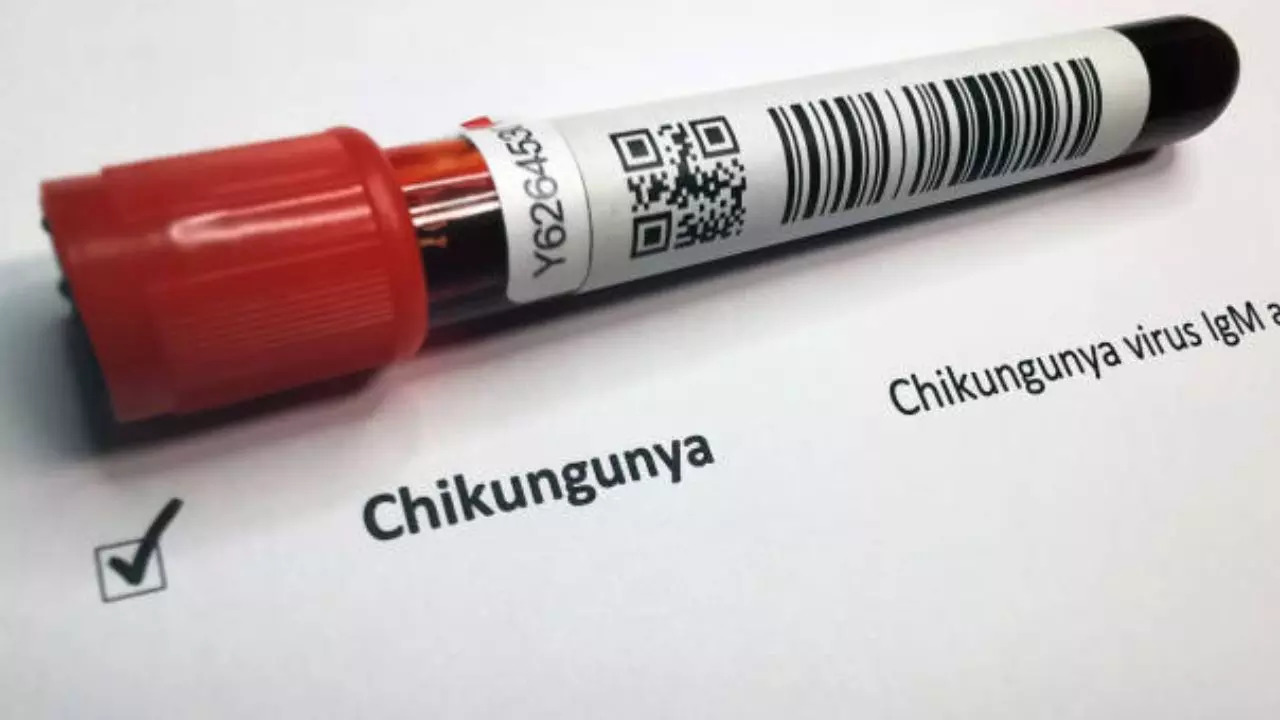-
news
-
Health
From joint pain to brain strain: Scary new symptoms of chikungunya have emerged in Mumbai.
Mumbai is facing a surge in chikungunya cases, with urban centers like Juhu and central Mumbai being the worst affected. Health experts link this increase to waterlogged areas that promote mosquito breeding. New symptoms, including neurological issues, create additional diagnostic challenges. Read on to know the preventive measures.

From joint pain to brain strain: Scary new symptoms of chikungunya have emerged in Mumbai (Image credit: iStock)
Mumbai An alarming increase in chikungunya cases has been seen in 2024. Health experts are expressing increasing concern over the increasing cases of the disease. Chikungunya, a viral disease spread by Aedes mosquitoes, is wreaking havoc on the city’s public health. Cases have been increasing since the beginning of the monsoon season. The disease, once seen mainly in rural areas, is now affecting urban centers like Mumbai. But why are these cases increasing continuously? We caught up with Dr Honey Savla, Internal Medicine, Wockhardt Hospitals, Mumbai Central, who shared the new symptoms and diagnostic challenges posed by this disease.
Why are chikungunya cases increasing?
Dr Savla shares one of the main reasons behind the increase in chikungunya cases in specific parts of the city, especially residential areas with high-rise buildings and areas prone to waterlogging. These areas often contain frozen water which provides ideal breeding grounds for Aedes mosquitoes. Urbanization with poor drainage systems is believed to be a major reason for the spread of this disease. Some areas like Juhu and central Mumbai have reported significantly higher cases, indicating that densely populated areas are being affected faster.
new symptoms of chikungunya
Dr. Savla explains that with the increasing cases, symptoms of chikungunya are also developing in Mumbai. “While the general symptoms of fever, joint painAnd while rashes persist, cases involving neurological issues and hyperpigmentation have increased, especially in patients with co-infections. “This could indicate a possible new variant of the virus, which could cause more serious complications,” he said. The city’s healthcare system is adjusting to these challenges, with private hospitals becoming more prominent for diagnostic testing, as the cost of specialized PCR tests continues to rise.
Who is most at risk?
Dr. Savla explains that as the monsoon season continues, people who spend a lot of time outdoors are more at risk, as they are more at risk of mosquito bites, increasing the chances of contracting mosquito-borne diseases. She goes. More than 40 percent of infected patients develop arthritis more than 3 months after acute illness.
Treatment Options and Preventive Measures
“Adjustments in diet have no proven effect in preventing or reducing the impact of these diseases. There is currently no medicine to treat chikungunya,” explains Dr Salva.
“Rest and fluids may relieve some symptoms. Take medicines such as acetaminophen or paracetamol to reduce fever and pain. Do not take aspirin or other non-steroidal anti-inflammatory drugs (NSAIDs), such as ibuprofen, as the possibility of bleeding cannot be ruled out,” he said.
Complications from chikungunya may include:
• Chronic joint pain: The most common complication, with some people experiencing pain for months or years.
• Neurological imbalance: Chikungunya can cause neurological imbalance, seizures and other neurological diseases.
• Eye diseases: Chikungunya can cause eye diseases, such as uveitis or retinitis.
• Jaundice: Chikungunya can cause jaundice due to liver damage.
• Acute kidney disease: Chikungunya can cause acute kidney disease if the kidneys are affected.
• Other complications: Rare complications include uveitis, retinitis, myocarditis, hepatitis, nephritis, bullous skin lesions, hemorrhage, meningoencephalitis, myelitis, and Guillain-Barré syndrome.
Experts advise residents to take extra precautions, such as:
– Using mosquito repellents,
– wear protective clothing, and,
– To eliminate stagnant water around their houses.
“With cases of chikungunya on the rise, these preventive measures are important to control the spread of the disease and keep Mumbai residents safe from further outbreaks,” he said.
Get the latest news live on Times Now with breaking news and top headlines from around the world.
Mumbai


